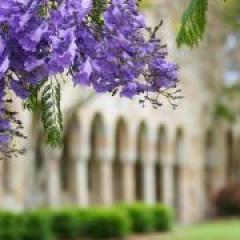Regime change: An anthracological assessment of fuel selection and management at Madjedbebe (Malakunanja II), Mirarr country, Australia
Abstract
This working paper is a presentation of my PhD thesis – its conceptualisation, results, and conclusions. My thesis explored fuel wood selection strategies at the site of Madjedbebe (Malakunanja II), in Kakadu National Park. This investigation found fuel wood selection remained locally focused over the past 20,000 years. The inhabitants of Madjedbebe consistently targeted two vegetation communities open Eucalypt woodland and monsoon vine forest for their fuel wood, with minor contributions from a third – Grevillea/Banksia shrubland. There was a clear diachronic change in the taxonomic composition of the hearths from Acacia sp. dominance to increased taxon richness. This shift did not align with any major shifts in climate or woodland composition and was probably due to a change in anthropogenic selection preferences over time.
This thesis was the first to develop a conceptual model for fuel wood selection in Australian anthracology. This model was developed in response to calls in the international anthracology literature for fuel wood to be conceptualised as a socially mediated and historically situated landscape practice. The model developed proposes anthropogenic landscape burning as a hypothesised post-LGM landscape management practice. This model offers the first conceptualisation of fuel wood within the Indigenous Australian landscape and economy.
About the Presenter
 Xavier Carah is a PhD candidate in the School of Social Science at the University of Queensland. He recently submitted his PhD thesis on Australian anthracology and fuel wood management. Prior to his PhD Xavier worked as a consultant archaeologist in Queensland and New South Wales, and has also worked in Collections Management at the Queensland Museum.
Xavier Carah is a PhD candidate in the School of Social Science at the University of Queensland. He recently submitted his PhD thesis on Australian anthracology and fuel wood management. Prior to his PhD Xavier worked as a consultant archaeologist in Queensland and New South Wales, and has also worked in Collections Management at the Queensland Museum.
About Archaeology Working Papers
The Working Papers in Archaeology seminar series provides a forum for dissemination of archaeological research and ideas amongst UQ archaeology students and staff. All students are invited to attend the series and postgraduate students, from honours upwards, are invited to present their research. The aim is to provide opportunities for students, staff and those from outside UQ, to present and discuss their work in an informal environment. It is hoped that anyone interested in current archaeological directions, both within and outside the School and University, will be able to attend and contribute to the series.
2025 Upcoming Sessions
| Date | Presenter |
|---|---|
| 8th August | Nicholas Hadnutt and Lincoln Morse |
| 15th August | Jane McMahon |
| 22nd August | Martin Gibbs |
| 29th August | Karen Cooke |
| 5th September | Shoshanna Grounds |
| 12th September | Meg Walker |
| 19th September | Marc Cheeseman |
| 26th September | Ladislav Nejman |



